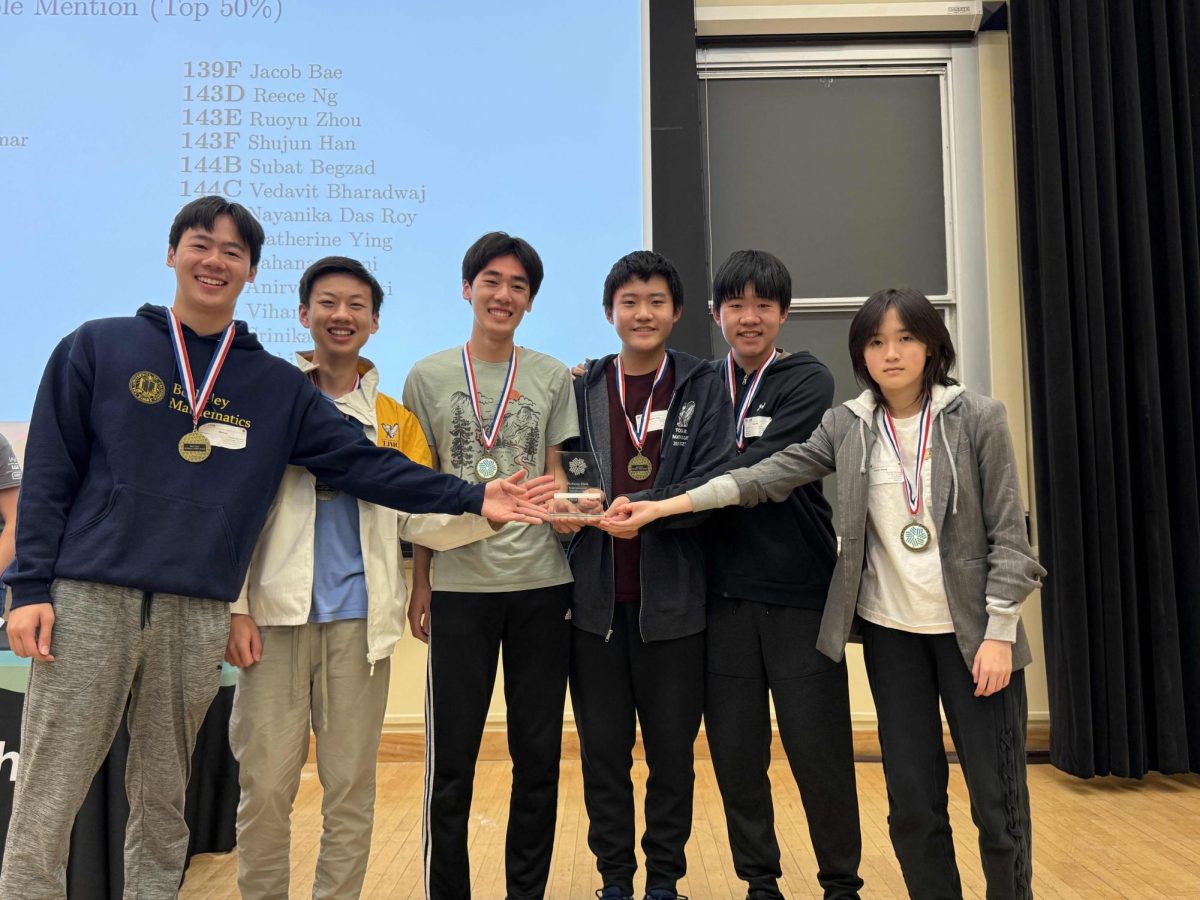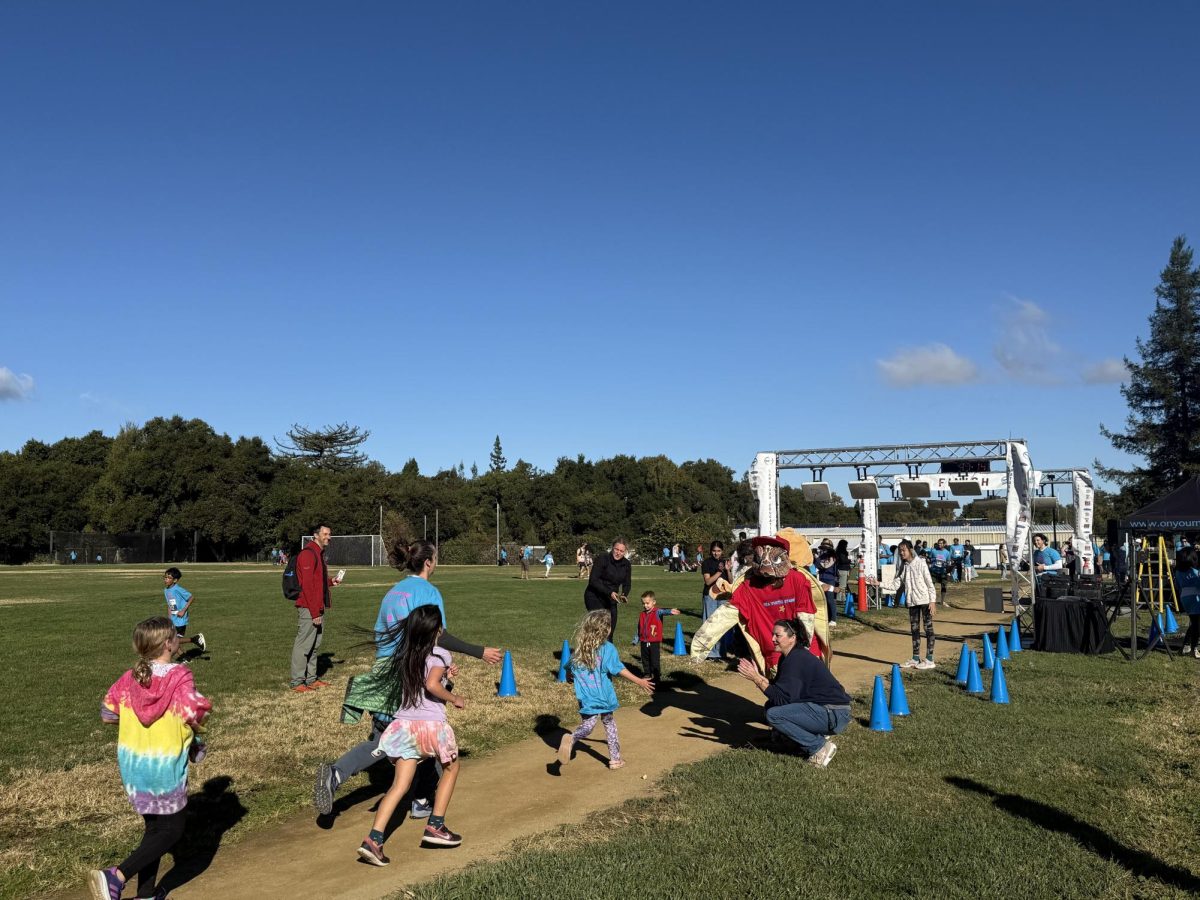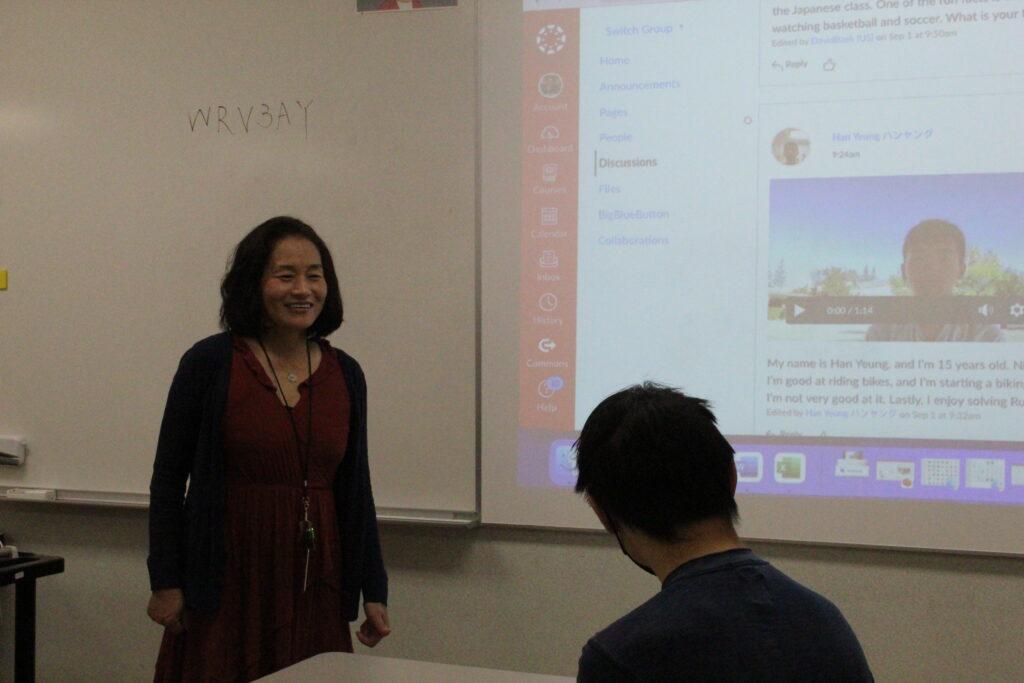Earlier this year in her period 3 class, new Japanese 3 Honors teacher Yumiko Muneishi set up the projector and opened up a Canvas link as a flurry of faces suddenly appeared. Speaking in Japanese, she introduced herself and her own students to students from Hiroshima Prefectural Yasufuruichi High, an overseas school that the Japanese class is working with to improve their language skills and make connections with students overseas.
Muneishi is the new Japanese teacher replacing Yukiko Hara after her departure. The Japanese class has been steadily continuing its curriculum since 2019, the first year that it returned to the school after not being taught for several years. Working closely with the Japanese program at Los Gatos High, the teachers have sought to create a meaningful and interactive learning environment.
“Right now, I’m following the lead of the previous teachers,” Muneishi said. “I need to be following their lead in order to help the students transition from last year. However, I will also start incorporating lessons that I’ve successfully done in the past.”
Initially, Muneishi started teaching in Japan, where she taught ESL to kids. After moving to the U.S, Munieshi experienced some difficulty finding a teaching job due job restrictions caused by the Bush administration’s Comprehensive Immigration Reform coupled with the location she resided.
However, she was soon able to find a job as a math and science teacher at Monte Vista Christian School, later becoming a Japanese 1 to AP level teacher. During this time, she gained professorship and started teaching Japanese at San Jose City College.
Using her previous work experiences, Muneishi plans to implement the lessons she has learned regarding teaching style and building connections with students. Muneishi’s teaching philosophy revolves around what she calls “Q-Tip,” which stands for “Quit taking it personally.” She believes that working with and giving feedback can sometimes be intense when working with students who she has just begun teaching. As such, she always lets them know that the feedback she gives is objective and aimed at helping the students rather than criticizing them.
Another phrase that Muneishi uses often is “ichi-go ichi-e,” which translates to “an unrepeatable moment in time” or “once in a lifetime.” She uses the phrase in the context of meeting new people. Wanting to apply this concept to a practical tactical application, students in Muneishi’s class have conversations with Japanese students overseas through Canvas. Muneishi believes that having genuine conversations with a class hundreds of miles away builds relationships that last lifelong — a student of hers even met one such friend during a trip to Japan.
“I believe making connections is the most important part of the class,” Muneishi said. “The students have gone through a lot of change over the previous years, so I hope teaching them the importance of relationships will help them now and in the future. I’m very excited for this year, and hope that I leave the students with lasting lessons.”


























